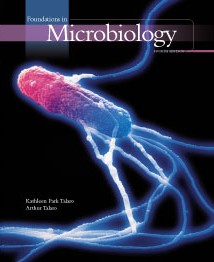 |  Foundations in Microbiology, 4/e Kathleen Park Talaro,
Pasadena City College
Arthur Talaro
Disorders in Immunity
Chapter Overview- The immune system is subject to several types of dysfunctions termed immunopathologies.
- Some dysfunctions are due to abnormally heightened responses to antigens as manifested in allergies, hypersensitivities, and autoimmunities.
- Some dysfunctions are due to the reduction or loss in protective immune reactions due to genetic or environmental causes, as exemplified by immunodeficiencies and cancer.
- Some immune damage is caused by normal actions that are directed at foreign tissues placed in the body for therapy, such as transfusions and transplants.
- Hypersensitivities are divided into immediate, antibody-mediated, immune complex, and delayed allergies.
- Allergens are the foreign molecules from the environment, other organisms, or even from the body that cause a hypersensitive or allergic response.
- Most hypersensitivities require an initial sensitizing event, followed by a later contact that causes symptoms.
- The immediate type of allergy is mediated by special types of B cells that produce an antibody called IgE. IgE can cause mast cells to release allergic chemicals such as histamine that stimulate symptoms.
- Examples of immediate allergies are atopy, asthma, food allergies, and anaphylaxis.
- Another type of hypersensitivity arises from the action of other antibodies (IgG and IgM) that can fix complement and lyse foreign cells. An example is the reaction due to incompatible blood transfusions or placental transfer.
- Immune complex reactions are caused by large amounts of circulating antibodies against foreign molecules accumulating in tissues and organs.
- Autoimmune diseases are due to the production of B and T cells that are abnormally sensitized to react with the body’s natural molecules and thus can damage cells and tissues. Some examples of these diseases include rheumatoid arthritis, systemic lupus erythematosus, myasthenia gravis, and multiple sclerosis.
- T cells are involved in delayed-type hypersensitivities wherein allergens cause damage to cells and graft rejection.
- Immunodeficiencies are pathologies in which B and T cells and other immune cells are missing or destroyed. They may be inborn and genetic or acquired.
- The primary outcome of immunodeficiencies is manifest in recurrent infections and lack of immune competence.
- Cancer is an abnormal overgrowth of cells due to a genetic defect and the lack of effective immune surveillance.
|
|


 2002 McGraw-Hill Higher Education
2002 McGraw-Hill Higher Education